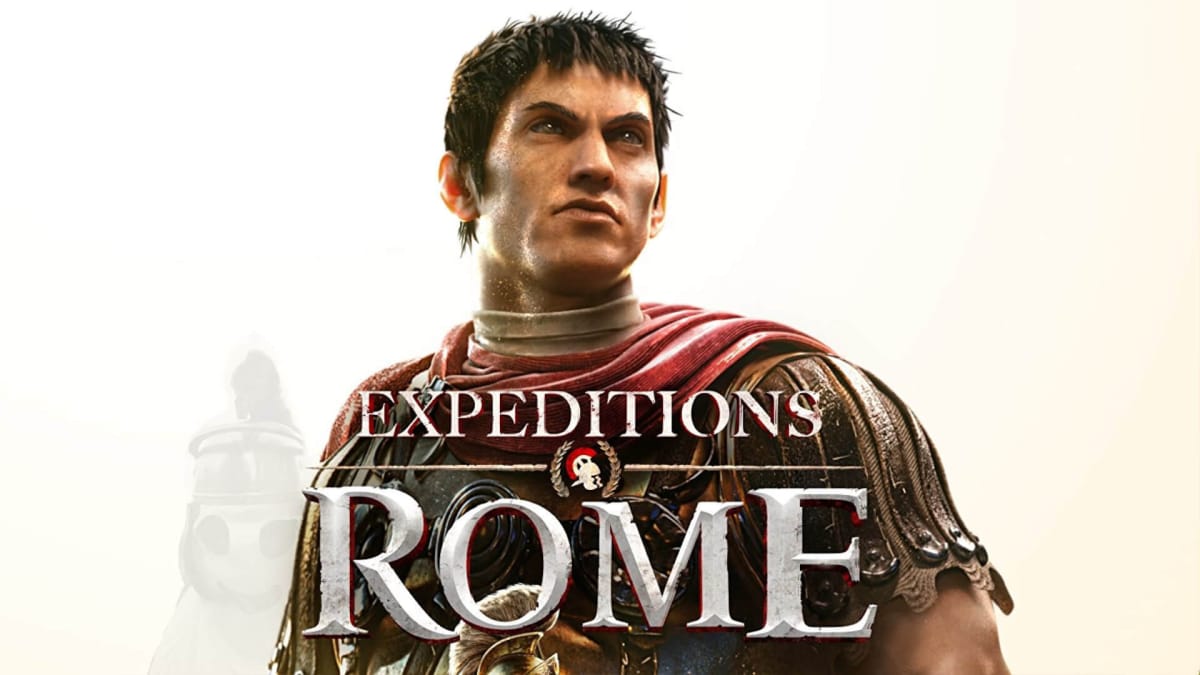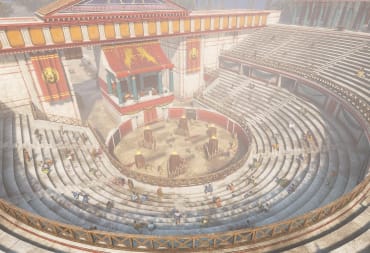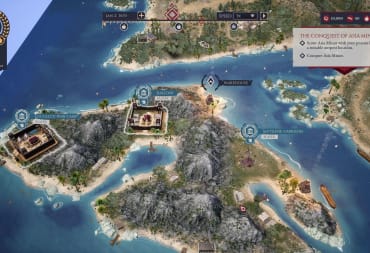The Expeditions series is one that I have always been curious about. A unique blend of tactical role-playing mixed with historical timelines and events is a pretty solid combination. That is a growing genre as of late, historically accurate RPGs have only become more prominent, and as a trained historian and an RPG fan, I can't think of any better intersection to jump into.
Developer Logic Artists now introduces the third title in the series, Expeditions: Rome. With so much to manage in a game about the Roman legion, the only real question is whether or not Expeditions: Rome buckles under its mechanics. Thankfully, it is not only a solid foundation but one that offers plenty of fun for those who enjoy tactical challenges.
In its basest form, Expeditions: Rome is a tactical RPG with a historical Roman backdrop. You play a young member of a Roman family in the waning days of the Republic, who begins a quest for vengeance against a rival Roman family that has murdered your father. To do this, he must prove himself a commander of a Legate, fighting in multiple campaigns across the ancient world as the very fabric of Rome begins to fall apart.
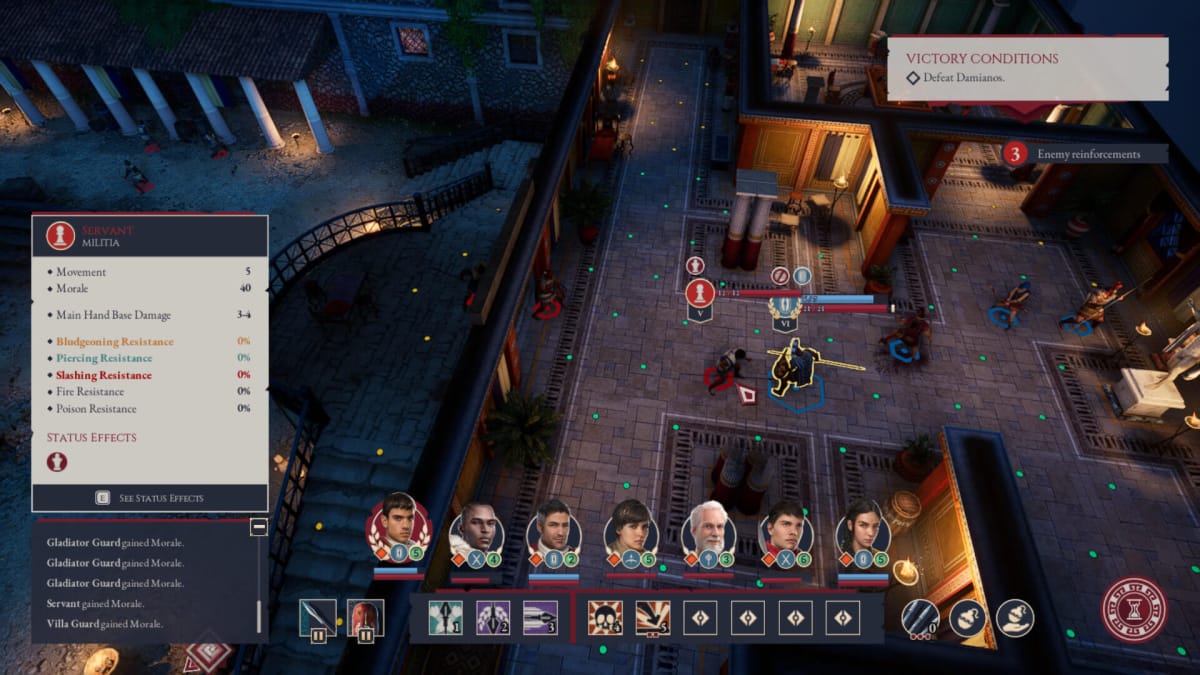
Narratively, Expeditions: Rome is not complicated on the surface. Much of its main plot is a retread of standard cliches, revenge, rising to power, the usual. Of course, there are more political complexities under the hood, and even with a well-worn story to follow, Expeditions: Rome finds ways to complicate things for the better.
The dialogue system in Expeditions: Rome is surprisingly good, where the choices made by the player often transform the experience of what you are playing. There were several instances where a choice I made earlier in the campaign came back later - sometimes acts later - that quickly grow into important consequences for your actions, such as an advantage on a combat map or extra options for dialogue. The solution is not always apparent, and that is a breath of fresh air for an RPG like this, as it gives you the freedom to actually roleplay your character.
What helps the dialogue shine through is the thorough attention to detail that Logic Artists put into the whole package. Rome itself is a character, a bloated, amorphous monstrosity that is filled with contradictions and superstitions, where respect can be given or taken away in an instant, depending on how you play the game The entire game is seeped into Roman culture and does the heavy lifting in engrossing the player into the ancient world.
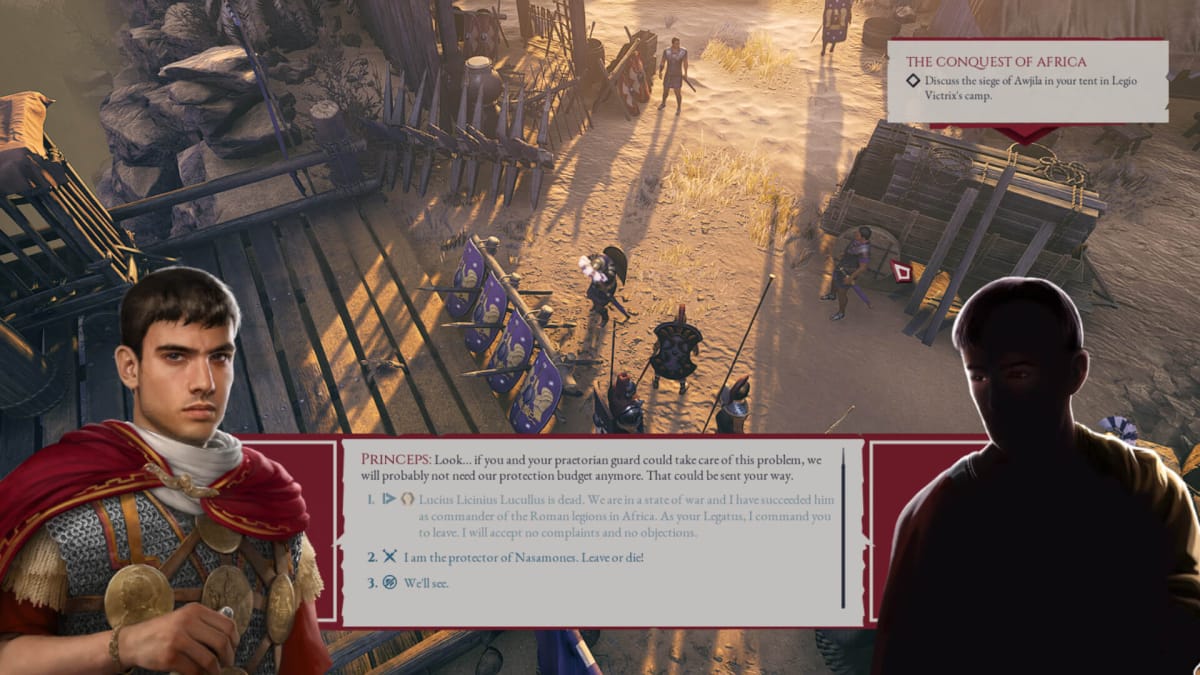
You will get to explore a lot of sides of Rome too, from roaming the streets of Rome itself, to overhearing trials within the halls of the Senate. Battles are across the entire empire, against Greeks, Egyptians, the Gauls, and even fellow Romans, all of which have unique blends of tactics that they employ. The best part is how accurate everything is. The proper use of the language, the gamification of the tactics; Expeditions: Rome is a treasure trove for tangential learning, regardless of the player's desire to learn from it.
While Rome itself is a character, what surprised me is the use of historical figures to further the game's plot progression. Players will have a philosophical conversation with Cicero and Cato, be tempted by Cleopatra, and be under the tutelage of Lucius Lucullus. We even get to meet more prominent figures before they were famous, such as Julius Caesar, who may aid the player for a battle or two.
There is something a bit contrived about this, as it would be unlikely a real Roman general would interact with all of these individuals in such a short amount of time. Expeditions: Rome skirts the line of being a cameo parade of name drops and utilizing these figures in a narrative context, but for the most part they help in servicing the storyline. It takes liberties with the history for sure, but it's enough to formulate a narrative that for the most part would fit in the timeline.
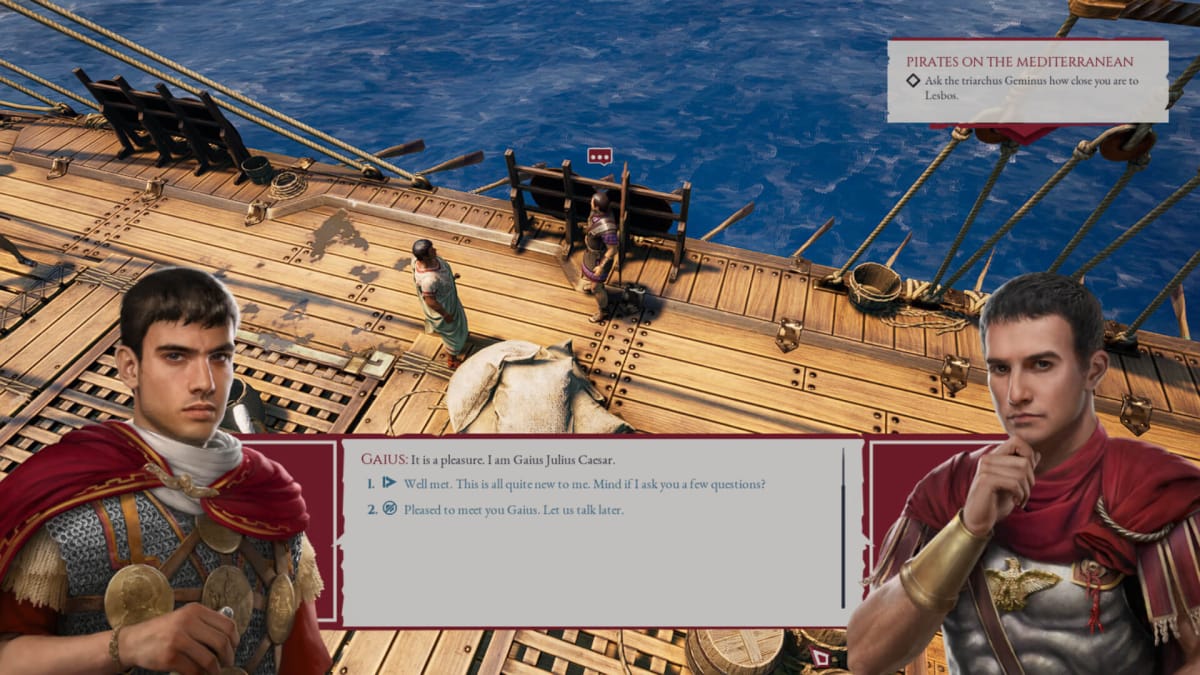
It also opens up the narrative into a form of alternate history to justify the actions of the player down the line; are you a conqueror of Rome, or an arbiter of Roman laws and ideals? The bulk of the game answers this based on your responses with the impact they have being cumulative towards how your party members view you. The more humble and honest you are, for example, might not sit well with those who favor cunning or boastful behavior. This affects the overall loyalty your soldiers have; special characters act as major commanders, but you can also recruit several generic legionaries into your ranks as well
You will need those generic soldiers because Expeditions: Rome is relentless with its strategic combat. The game flows with a fairly efficient structure; you build up your army forces to take over enemy territories you are trying to conquer, all the while gathering resources to keep your army from starving or slowly depleting in the field. The mass battles are played automatically, with tactical cards being the only input you make. After pacifying regions, you need to typically do a mission to pacify the region, so it falls fully under your control.
The real bulk of the game comes through with three mission types; pacification missions, side-quests, and sieges. The side-quests are few and mostly fall into the hands of minor issues, such as putting out fires or helping a companion on a side mission. Pacification missions require you to use one major character and your generic legionnaire to great strategic effect. There are four classes in Expeditions: Rome, each with three distinct skill trees and abilities that need to be utilized to survive the onslaught of enemy combatants.
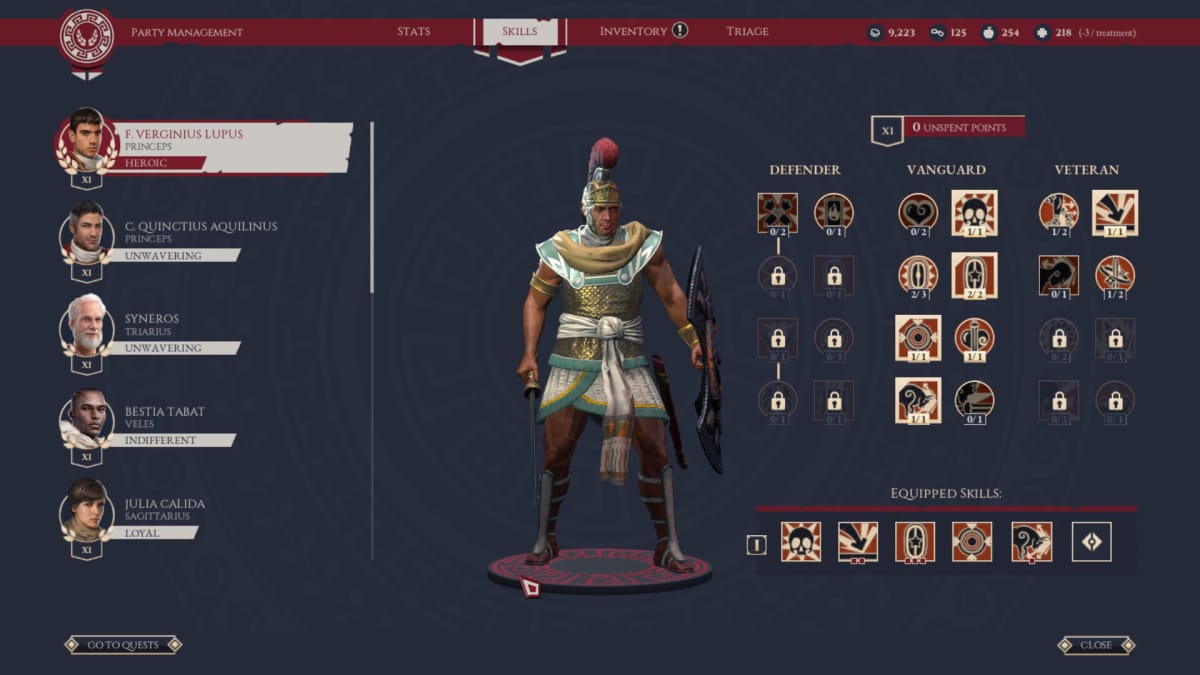
Fights can be fast and brutal, or long, painful slogs. Nowhere is this evident than the siege missions. These sieges are great from a tactical standpoint, but are a massive time sink, often taking about 2 hours to complete fully. Each siege has multiple objectives, from burning down bridges to rescuing allied combatants, that you need to succeed in to advance. Often switching perspectives to multiple groups you have to create with your party. To say the least, siege missions are challenging, as careful planning is needed to accomplish your objectives through them.
The real enemy in a game like Expeditions: Rome is ultimately downtime. Tactical battles take up the bulk of the game, but the time between them is surprisingly sparse. The cycle of pacifying/defending/conquering regions on the world map has a lot of gaps in between them, some of which frankly takes up so much time you can spend a solid twenty minutes fast-forwarding the game world to get things done.
If you have injured legionnaires, for example, that can take 40 plus game hours to heal fully. You need to sacrifice members of your party for camp tasks, so if you need to replenish your stock of consumable items, research new strategies for the mass battles, or even craft new or improved weapons and armor, giving you the right combination of action skills to do damage to the enemy. This is a major time-sink that may leave you idle for longer than you think, slowing the game to a crawl. This is a major flaw to the gameplay loop, it is fun in massive bursts when you interact with the narrative, politics, and tactical combat, but painfully sluggish in-between these islands of gameplay.
It's easy to poke holes in other aspects of Expeditions: Rome, but they make up minor issues in comparison to the overall package. Ultimately, Expeditions: Rome is a great tactical RPG that is well worth your time. It has plenty of intricate mechanics to satisfy the tactical fans out there along with tons of tactical variety in its missions. Throw in a story that really lets you feel like a Roman citizen, despite how predictable it may become, and you have a solid entry into the Expedition series. Expedition: Rome is deserving of a triumph of its own right.
TechRaptor Reviewed Expeditions: Rome with a copy provided by the publisher.
Review Summary
Pros
- Strong Tactical Battles and Mission Variety
- Great Mix of Historical Accuracy and Alternate History
- Tons of Mechanics Without Being Overwhelming
- Large Scale Warfare, Sieges, and Roleplay Choices
Cons
- Narrative is Secondary to the Mechanics
- Lots of Downtime between Battles
Have a tip, or want to point out something we missed? Leave a Comment or e-mail us at tips@techraptor.net
